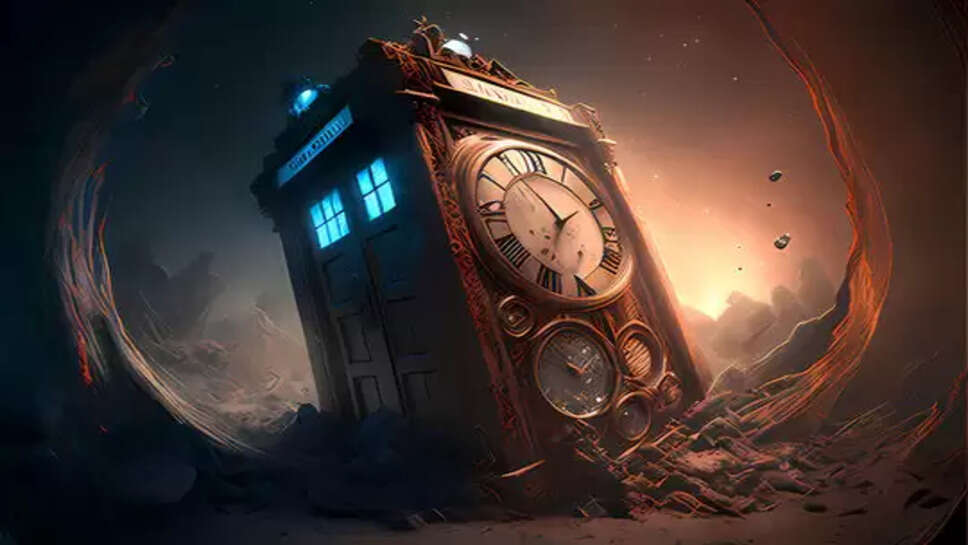Time Travel to the Past: A Fantasy in Films, a Puzzle in Physics

Time travel has long fascinated the human imagination. From the ticking clocks of Back to the Future to the swirling wormholes in Interstellar, cinema has romanticized the possibility of jumping across centuries, altering fates, and fixing past mistakes. Films make it seem easy: a machine, a formula, a magical artifact, and voilà—you’re back in 1955, or even the Jurassic era. But what does science say?
While Hollywood scripts are filled with time loops and paradoxes, the scientific community remains cautious, curious, and deeply divided. The notion of traveling backward in time is among the most puzzling and controversial questions in modern physics. Unlike moving forward through time—which we all do, second by second—reversing time challenges the fundamental structure of reality.
Let’s break down what science knows, where the doubts lie, and why your DeLorean might still be a dream.
🎥 The Allure of Time Travel in Pop Culture
Ever since H.G. Wells penned The Time Machine in 1895, stories of temporal travel have gripped popular culture. Films like Looper, The Terminator, Donnie Darko, and even Harry Potter and the Prisoner of Azkaban have explored different ways time might be manipulated. Some use machines, others magic. Some go back to prevent disasters; others get trapped in endless loops.
These narratives are compelling because they tap into a universal fantasy: what if we could change the past? What if we could stop a tragedy, meet a lost loved one again, or correct a regret?
But reality, governed by physics rather than fiction, doesn’t bend so easily.
⏳ Time’s One-Way Street
To understand the problem, it’s important to realize how physics treats time. In our everyday experience, time has a direction: we are born, we age, we die. Eggs break, but they don’t unbreak. Smoke disperses but doesn’t gather. This is called the arrow of time, and it’s largely governed by the laws of thermodynamics—specifically, the idea that entropy (disorder) tends to increase.
If time were truly symmetrical, everything could, in theory, happen in reverse. But in our universe, some processes only seem to move one way.
Physicists can describe the laws of motion in both directions mathematically, but that doesn't mean time itself is easily reversible. Most scientists agree that moving forward in time (as we all do naturally) is consistent with physical law, but moving backward in time poses deep contradictions.
🌀 Wormholes, Black Holes, and Theoretical Loopholes
That said, modern physics doesn’t entirely close the door on backward time travel. Theoretical concepts like wormholes—tunnels through spacetime—suggest shortcuts between distant points in space and potentially time. These ideas emerge from Einstein’s general theory of relativity, which describes how gravity warps space and time.
Some scientists have proposed that, under specific and extreme conditions, a wormhole could allow a traveler to enter one mouth and emerge at an earlier time through the other. The problem is that:
-
We have no empirical evidence of wormholes.
-
Even if they exist, maintaining one would likely require exotic matter—with negative energy—that hasn’t been proven to exist in sufficient quantities.
-
They may collapse instantly or be too unstable for anything to pass through.
Similarly, theories involving closed time-like curves (CTCs) suggest that under specific spacetime geometries, an object might return to its own past. But again, these are mathematical solutions, not practical engineering blueprints.
🚫 The Paradoxes of Time Travel
One of the biggest reasons scientists are skeptical about traveling to the past is the existence of time paradoxes. The most famous is the grandfather paradox: if you travel back in time and prevent your grandfather from meeting your grandmother, would you even exist to go back in time in the first place?
These logical conundrums cast doubt on the possibility of freely altering the past. Some researchers suggest that time might be "self-consistent"—meaning any action you take in the past must already be part of history. You could go back, but you couldn’t change anything. This idea is explored in films like 12 Monkeys, where the protagonist’s actions in the past were always part of the timeline he was trying to escape.
Others propose multiverse theories: maybe when you change the past, you simply create an alternate timeline or reality. That’s the premise behind movies like Avengers: Endgame, but it moves the goalposts—you're not really changing your past, but creating a new version of it.
💡 What About Quantum Mechanics?
Some physicists look to quantum mechanics for possibilities. The bizarre world of quantum particles doesn’t always follow the logic of classical physics. Concepts like quantum entanglement and retrocausality—where effects could seemingly happen before their causes—suggest time might not be as rigid as it appears.
There are experiments that imply particles may be influenced by future conditions, though these results are highly debated and far from settled. Still, the quantum world continues to challenge our understanding of time and causality.
However, even the strangest quantum behaviors don't currently provide a clear path to sending a human being—or even a message—back in time.
🚀 The Technology Gap
Even if the theories worked, the technology required to manipulate spacetime in such extreme ways is far beyond anything humanity possesses. We don’t have machines that can curve space, generate wormholes, or build time loops. Creating such a device would require mastery of physics we don’t yet understand, and probably energy levels that make nuclear bombs look like AA batteries.
🤔 Why the Fascination Endures
Despite the scientific barriers, time travel remains one of the most exciting "what ifs" in both science and storytelling. Part of that appeal comes from our emotional connection to time. Everyone has memories they’d relive, mistakes they’d fix, or loved ones they’d revisit. Time travel offers hope—a fantasy that time isn't just a relentless river but something we could learn to navigate.
It's also a way for fiction to explore deeper questions: What defines destiny? Is the past set in stone? Can we change the future by better understanding the past?
🧭 So, Can You Travel Back to the Past?
In summary: not yet, and possibly never. According to our current understanding of physics, time travel to the past is either:
-
Impossible due to paradoxes,
-
Inaccessible due to technological limitations,
-
Or only theoretically allowed under speculative and extreme conditions.
But that hasn't stopped dreamers, scientists, or storytellers from exploring the idea. If anything, time travel remains one of the last great mysteries—where imagination leads and science tries to catch up.
